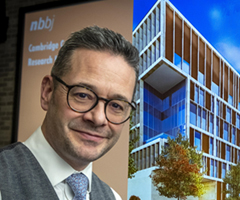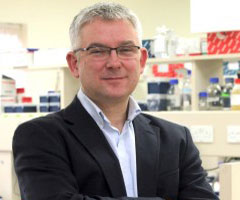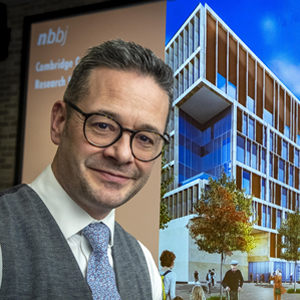Ependymoma research
Ependymoma is one of the most common high grade brain tumour in children. According to the World Health Organisation, ependymomas can be catagorised as Grade 1, 2 or 3 depending on the individual tumour characteristics.
In around 40% of cases, the current treatment options offer no cure for patients and the long term survival from this tumour remains poor.
Current ependymoma research
Here are the research projects we are currently funding that relate to understanding or treating ependymoma

Professor Richard Gilbertson
No brain tumour ignored
This grant is for a large programme of work into two different rare childhood brain tumours. Professor Gilbertson will focus on three main areas of work: making better models to use in the lab, discovering and testing new drugs, and trialling the best way to deliver new drugs to tumours.
Other current research projects
Here are the research projects we are currently funding that relate to understanding or treating brain tumours, including ependymoma

Professor Steve Clifford
INSTINCT:on a mission to beat childhood brain tumours
Our INSTINCT programme brings together experts from Newcastle University, the Institute of Cancer Research (ICR) and the UCL Institute for Child Health in London to research high-risk childhood brain tumours, including DIPG.
The research programme on DIPG is being led by Dr Chris Jones at the Institute of Cancer Research. Dr Jones has extensive experience in understanding the genetic basis of these tumours and what is driving tumour growth and then developing new drugs that target the genes involved.

Professor Colin Watts
Tessa Jowell BRAIN MATRIX
The Tessa Jowell BRAIN-MATRIX is a first-of-its-kind study that will enable doctors to treat brain tumours with drugs that are more targeted than ever before. We are excited to be investing £2.8 million to set the study up, and to drive it into the future.
Although the trial is being led from the UK, we expect it to deliver global impact for brain cancer patients.

Dr Jan Schuemann
Extreme dose rate proton therapy
Previous studies have shown that delivering radiotherapy extremely rapidly can dramatically reduce side-effects. Radiation therapy that delivers the same dose of radiation in a much shorter period of time is called extreme dose radiation (EDR). EDR therapy has not been tested using proton beams, and that’s where this innovative research project comes in.
The research team, led by Dr Schuemann, will use pre-clinical models to test EDR proton therapy with the aim of establishing a treatment regimen that’s effective and well-tolerated by people. They’ll compare EDR to conventional radiation delivery and look for any differences in side-effects, specifically looking into the effects on cognition and motor control.



